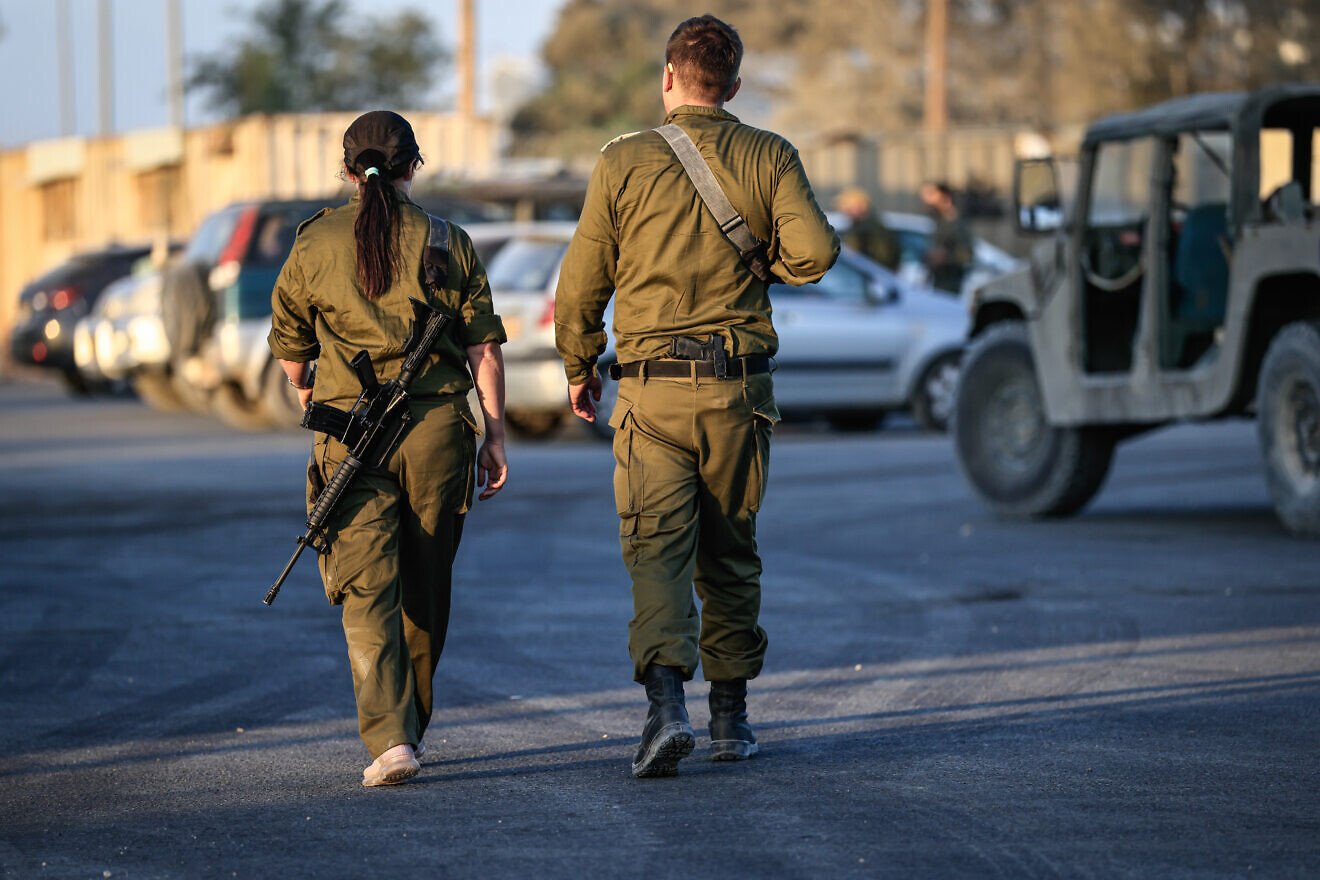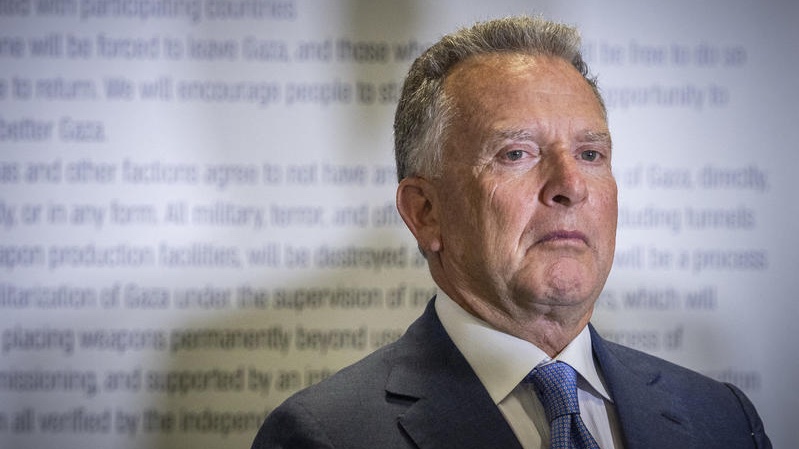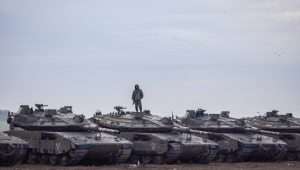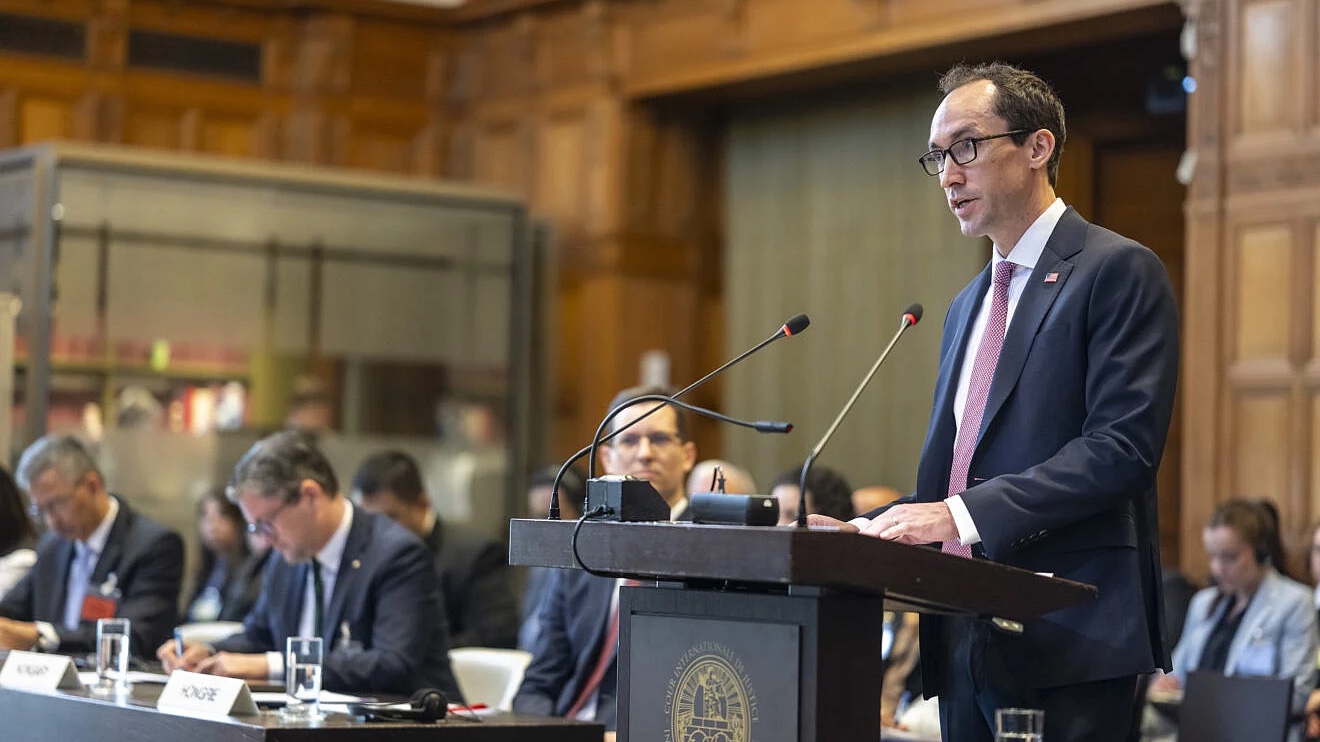(JNS) When American-Israeli soldier Edan Alexander rose to the podium at the Friends of the Israel Defense Forces gala on Sept. 18 in New York, his words rang out not only as testimony, but as a call to arms of the soul.
“I was held for 584 days,” recounted Alexander, who was released from Hamas captivity in May and returned to New Jersey to recuperate from his ordeal. “Those were the hardest days of my life. Days of struggle, pain and separation from my family. But tonight, I’m standing here free.”
He went on, “Next month, God willing, I will return to Israel. I will once again put on the IDF uniform, and I will proudly serve alongside my brothers.”
When the standing ovation this elicited quieted down, he said, “My story does not end with survival. It continues with service.”
Switching to Hebrew, his parents’ native language, he announced, “Ad hanitzahon” [“Until victory.”]
His speech couldn’t have been more appropriate at this critical juncture. Forty-eight hostages are still being held by the monsters who abducted them, and the IDF is conducting an operation to take over Gaza City—Hamas’s last stronghold in the Strip, as well as the likely location of many of the 20 living and 28 deceased captives.
Indeed, Alexander’s message served as a reminder about the Israeli spirit: that it remains unbroken, even after nearly two years of the multi-front war spurred by the Hamas massacre of Oct. 7, 2023. It’s the perfect antidote to the voices in Israel and abroad painting a very different picture of the mood in the Jewish state—as though the country is sinking into despair.
Oppositionists have been pointing to protests against Israeli Prime Minister Benjamin Netanyahu and his government, the exhaustion of reservists and chronic PTSD. Take a number of recent headlines from English-language Israeli news outlets, for example; most of the Hebrew press has been similarly inclined.
- “Tens of thousands of reservists drafted ahead of Gaza City takeover, but turnout down”—The Times of Israel, Sept. 15, 2025
- “Sharp drop seen in reservist response rate due to burnout amid long war”—The Times of Israel, Sept. 9, 2025
- “Over 1,100 IDF soldiers discharged with PTSD since Gaza war, military data reveals”—The Jerusalem Post, Sept. 1, 2025
- “Israel’s soldiers are dying off the battlefield”—The Jerusalem Post, Aug. 29, 2025
- “Reservist medic dies by suicide, prompting IDF to reassess casualty recognition”—The Times of Israel, Aug. 18, 2025
- “IDF won’t recognize reservist who died by suicide as fallen soldier, says he was off-duty–report”—The Jerusalem Post, July 31, 2025
- “Nearly 50 Israeli soldiers commit suicide since Gaza war: Report”—Haaretz, July 30, 2025
- “Diagnosing fatigue: Missile fire and sleepless nights: How Israelis are battling fatigue after the war with Iran”—The Jerusalem Post, July 9, 2025
- “IDF suicide rate rises amid ongoing war and mass reservist call-ups”—The Times of Israel, July 28, 2025
True though these stories may be, they distort the deeper sentiment of the Israeli public. What they cause readers to ignore is that since the IDF announced the launch of Gideon’s Chariots II, the turnout for reservists has been 75%-85%, with some units even exceeding 100% participation.
It’s an astonishing figure after nearly two years of nonstop war. It illustrates national determination to endure for an existential cause, not the malaise of a people in decline.
It is this that we all need to keep in mind ahead of Rosh Hashanah, the Jewish new year that begins on Monday evening. Yes, the worst thing we can do now—both individually and collectively—is to let the negative narrative take precedence. All it does is undermine the very strength that has carried us this far.
In truth, our steadfastness is miraculous. Despite loss and trauma, we are still standing, fighting and living. Singing on promenades in Tel Aviv, dancing at weddings in Jerusalem, arguing with our children over screen time, planning family dinners.
Ironically, the anxiety many of us feel over what to cook for the holiday and how to avoid tension with in-laws often looms larger at this time of year than missiles from Hamas, drones from the Houthis or saber-rattling from Tehran. It is this paradox that we should cherish as we enter what promises to be the last stage of the battle to defeat Hamas.
As Edan Alexander put it so perfectly: “Until victory.”
Want more news from Israel?
Click Here to sign up for our FREE daily email updates















I think what has been lost in the nations’ condemnation of Israel is that had Hamas returned all hostages at the beginning, thousands of lives would have been spared. There is NO question about who bears responsibility for Gazan deaths and it is NOT Israel!